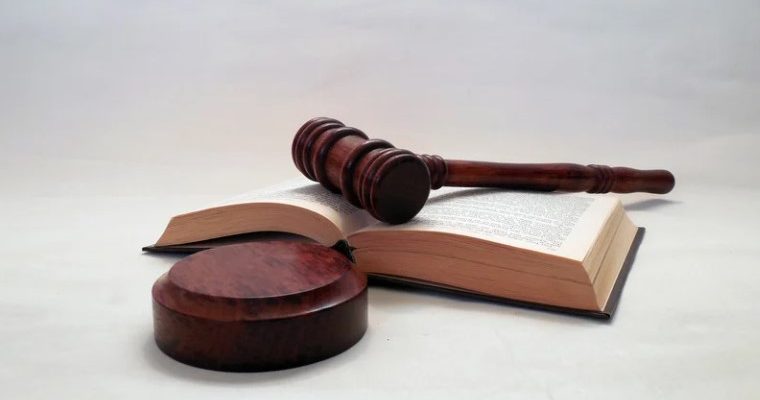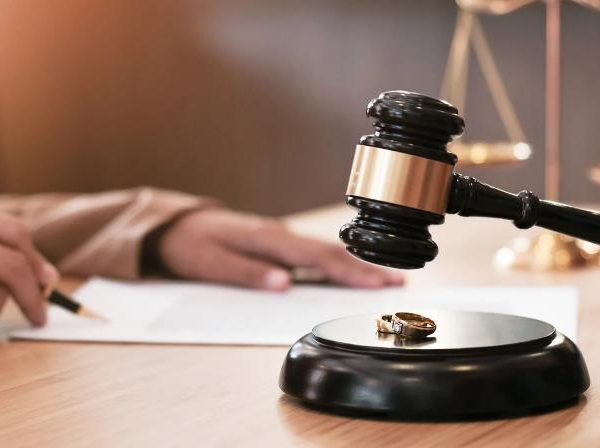
Rule of Law in UK – Every UK Citizens Must be Aware of
The Rule of Law is a legal concept that governs the actions of all individuals and organizations in society. It dictates that every individual and organization has to abide by the law to ensure transparency, fairness, and justice. The concept is important to individuals who seek a society based on laws, an independent judiciary, and democracy.
The rule of law has an immense influence on British citizenship. Being a citizen of this country means upholding its fundamental principles. This blog will cover the rule of law and why everyone must know it. We will also touch upon its influence on citizenship, diversity and the government’s role in upholding it.
What is Rule of Law?

The UK constitution is based on the rule of law, a basic notion. Its core principles include limitations on state authority, protection for basic rights, and judicial independence.
The rule of law is a principle under which all persons, institutions, and entities are accountable to publicly promulgated laws, equally enforced, independently adjudicated, and consistent with human rights. It ensures equality before the law and justice irrespective of economic status or caste.
Equality before the law is so essential that when a majority infringes upon the rights of a minority, the court may hear both sides of the controversy in court. Thus, it seeks to overcome global challenges such as violence, infringement of human rights, environmental destruction, economic inequality, injustice, poverty and hunger.
The rule of law is essential for overcoming global challenges because it makes every citizen aware of their rights and duties as citizens. Moreover, the laws are straightforward to understand. This leads to stable and trustworthy institutions that can sustain democracy. Everyone should be equal before the law, regardless of socioeconomic status or caste.
The rule of law encourages citizens to participate in the democratic process and make informed decisions. As a result, citizens have confidence in government institutions. Moreover, they feel safe and secure in the country’s legal system.
Who Propounded the Rule of Law?
Dicey is the one who first outlined the rule of law and parliamentary Sovereignty. In his work Introduction to the Study of the Law of the Constitution, Dicey advocated for a legal system based on the rule of law. According to Dicey, the rule of law is one of the British Constitution’s twin pillars, based on the idea of Parliamentary Sovereignty.
Rule of Law British Values

Under the rule of law – individual liberty, people of various faiths and ideas must have mutual respect and tolerance. This means all citizens are equal before the law, and government agencies must follow fair and objective legal processes when making decisions. Decisions cannot be made for any reason other than the one stated in the law.
The concept of the rule of law is at odds with that of flexibility. Still, even if it may be more desirable, it is vital to have fair and consistent laws that apply equally to everyone to ensure justice is delivered. Judge Culver of the District Court of New South Wales has outlined four principles of the rule of law – equality before the law, fairness under the law, impartiality and legality – essential for ensuring justice for all.
The Rule of Law Wheel developed by the Rule of Law Education Centre provides a useful tool for discussing these principles.
Rule of Law Principles
The rule of law is a principle under which all institutions, entities, and people are held accountable to publicly promulgated laws, equally enforced, independently adjudicated, and consistent with human rights principles.
All individuals, organizations, and entities, both public and private limited companies, and the State itself, are answerable to publicly promulgated laws that are equally enforced and independently judged in accordance with international human rights norms and standards.
The rule of law is a vital safeguard for individual rights and freedoms. It ensures that all citizens, including those in power, are equally subject to the law. As such, its essential features ensure fairness and equality in various aspects of life.
Why is the Rule of Law Important in the UK?

The Rule of Law has been a long-standing principle of governance in the UK, as evidenced by the Magna Carta of 1215 and the Bill of Rights of 1689. The former is considered the world’s oldest civil rights document and is credited with laying the foundation for modern-day democracy.
The Bill of Rights, meanwhile, guarantees citizens basic human rights such as a fair trial, due process, and equality before the law. Both pieces of legislation highlight the importance of the rule of law in our society.
The concept states that laws should not be arbitrary or subject to political interference but rather be applied equally to all citizens without discrimination. The rule of law also stipulates that legal systems must provide equal access to justice for all citizens regardless of race discrimination, gender, financial status, or other factors.
The rule of law distinguishes itself from the rule of men by emphasizing customary law rather than written law. This emphasizes the importance of legal systems upholding justice and fairness through practical experience and wisdom rather than relying on legislative decrees alone.
As such, it helps us overcome global challenges such as violence, human rights infringement, environmental destruction, economic inequality, injustice, poverty, and hunger.
Who is Exempt From the Rule of Law?
According to constitutional scholar A.V. Dicey, the rule of law and parliamentary Sovereignty are two pillars of the British constitution. The UK government is generally subject to the rule of law. However, certain institutions may be exempt.
For example, the Queen is not subject to the rule of law as she is above the law and exempt from prosecution. The UK Parliament is also exempt from the rule of law, as it holds sovereign power and can override any law. The government’s use of the rule of law can benefit citizens worldwide, as it ensures rights are protected, and those that breach these rights are brought to justice.
The judiciary is vital in upholding legal rights in a democratic society. However, due to various human rights violations over the years by various institutions, there has been a growing demand for judicial activism. This calls for justice institutions to stand up against human rights violations wherever they occur without fear or favour or race.
How Does the Rule of Law Influence Citizenship and Diversity?
The rule of law is a core value of many countries. In the United Kingdom, it’s enshrined in the law and is meant to ensure equal access and responsibility to the law for all citizens, regardless of their differences and disability. In addition, the rule of law ensures accountability, due process, and transparency in legal systems and governments.
Research showed that rule of law correlates to higher economic growth, greater peace, less inequality, improved health outcomes, and more education. This is because the legal system protects the rights of individuals, provides efficient government services, and supports fair competition. It also promotes justice and equality by protecting vulnerable groups from workplace discrimination or abuse.
The rule of law is based on the principle that all persons must be accountable to publicly promulgated laws, equally enforced, independently adjudicated, and consistent with international human rights principles. As such, it enhances citizenship and diversity by promoting equality in the eyes of the law and a commitment to human rights.
What is an Example of Rule of Law?

The rule of law is a principle that requires government institutions and individuals to obey the law regardless of their own political, economic, or social interests. It’s an essential part of a functioning society whereby citizens are treated equally under the law and are governed by the same legal system.
For instance, equality before the law is an essential part of the American system of government, such that when a majority infringes upon the rights of a minority, the court hears both sides of the controversy. This ensures that justice is delivered to all, no matter their political status or economic background.
Moreover, the rule of law helps overcome global challenges such as violence, infringement of human rights, environmental destruction, economic inequality, and injustice. It provides people with stability and security in society.
How Does Judicial Review Uphold the Rule of Law?
The judiciary is the body that ensures the rule of law in the country. It plays an integral role in maintaining the rule of law by hearing grievances voiced by minority groups or those who may hold minority opinions. In other words, the judiciary is the final arbiter of legal disputes.
Equality before the law is also essential to the American system of government. This allows the courts to hear both sides of a controversy if a majority infringes upon the rights of a minority. Judicial review is another way in which courts uphold the rule of law.
The IBA Checklist is a comprehensive tool that can be used to assess respect for the rule of law and judicial review. The judiciary is important in upholding democracy and the rule of law.
How is the Government Limited by the Rule of Law?
The rule of law is a fundamental principle of government in any legal system. This principle states that all persons, institutions, and entities are accountable to publicly promulgated laws, equally enforced independent adjudication, and consistent with human rights principles. The government must ensure justice for all its citizens and to maintain the rule of law.
Equality before the law ensures that no one, including government officials, is above the law and must follow the same rules as everyone else. Government officials are subject to existing laws and must act impartially and consistently across all cases.
The rule of law requires a legal apparatus to ensure government officials submit to the law. In addition, legal systems promote fairness, impartiality, and transparency in the administration of justice. It also ensures that people have access to justice and receive due process when they face criminal charges. In summary, the rule of law is vital for ensuring justice for all citizens without discrimination or abuse of power by government officials.
Conclusion
The rule of law is the principle that legal authority depends on the objective and just laws enacted by the legislature and enforced by an independent judiciary. It is essential for a functioning society because citizens will obey the law, and each individual will have rights that must be protected.
The rule of law is fundamental to democracy and human rights. A society with a robust rule of law framework will be able to function efficiently while ensuring justice and human rights are upheld. This understanding must permeate society’s mindset to develop a strict rule of law system.
FAQ – Rule of Law

What are the types of rules in the UK?
The sovereign monarch (the king or Queen who is the head of State at any given time) does not take any public political actions in the United Kingdom, which is a constitutional monarchy. Instead, the government and Parliament make all political decisions.
What is the purpose of law UK?
The purpose of law in the United Kingdom is to maintain and promote the rule of law, a fundamental principle of British society. The rule of law ensures that all citizens, including those in power, are fairly and equally ruled by the law. It also protects individuals’ rights and liberties by ensuring that judiciaries operate free from undue influence.
The law UK monitors federal legislation and executive action to ensure they comply with the “Rule of Law Principles.” These principles guide the government in ensuring that law is applied equitably and fairly, promotes human rights, and promotes democratic institutions.
What is rule of law and British constitution?
The rule of law is a principle of how the United Kingdom is governed, dating back to the Magna Carta in 1215 and the Bill of Rights in 1689. It refers to the principle that everyone, including those in power, is fairly and equally ruled by the law. This means that no one can rule above the law and that the law is always applied equally to all citizens.
The rule of law was famously outlined in the 19th-century work Introduction to the Study of the Law of the Constitution by A.V. Dicey. This work emphasized the two pillars of the British constitution: the rule of law and parliamentary Sovereignty. The rule of law ensures that all citizens, including those in power, are fairly and equally ruled by the law. No one is above the law.
This principle is important because it protects citizens from government abuse and ensures that all rights are protected equally. However, it also ensures that government officials are held to a high standard and must act ethically to remain in power.
What are the 4 principles of rule of law?
The rule of law is a concept that refers to the fundamental principles under which a government operates. These principles include accountability, just law, open government, and accessible and impartial justice.
Accountability holds government and private actors accountable for their actions. Just law ensures respect for human rights, property, employment contracts, government contracts, and procedural rights. The open government ensures law adoption, administration, adjudication, and enforcement processes are accessible and fair.
Accessible and impartial justice is delivered timely by ethical and independent representatives reflecting the makeup of the communities they serve.
What is the rule of law UK dicey?
The rule of law is a long-standing principle in the United Kingdom, with its origins dating back to 1215 when the Magna Carta was signed. A.V. Dicey, a British constitutional scholar and lawyer, described the British constitution as composed of two main parts: the rule of law and parliamentary Sovereignty.
Dicey’s classic work, Introduction to the Study of the Law of the Constitution, was published in 1885. In it, he defines the rule of law as “the idea that all people, including the government, are subject to the law.” No individual or group can arbitrarily bend or break the law. Furthermore, all branches of government must obey the law equally – whether it’s the judiciary, legislative, or executive branches.
This fundamental principle is vital for a functioning democracy because it ensures that all people have access to justice and that government officials are held accountable for their actions. It also protects citizens from arbitrary power grabs by leaders who may not adhere to the rule of law.







